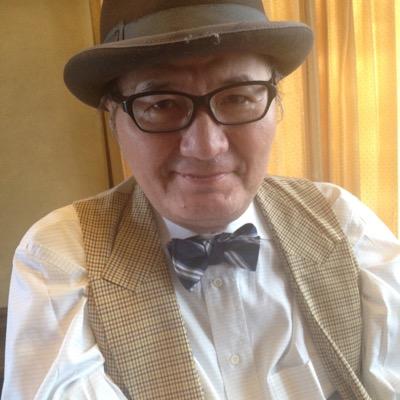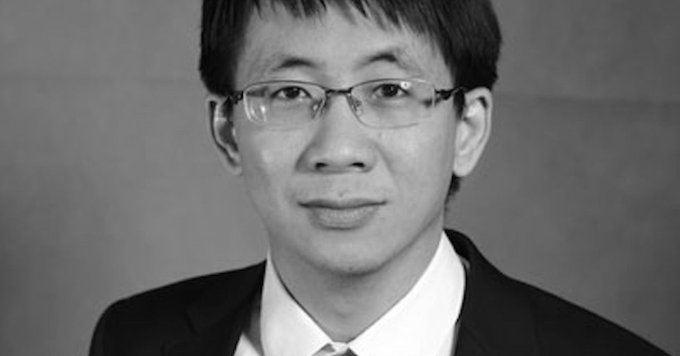
China Media Project
@cnmediaproject
Followers
199,929
Following
2,092
Media
1,830
Statuses
19,542
The CMP is an independent research project studying the Chinese media landscape within the PRC and globally, as well as the CCP's media and political discourse.
Joined April 2010
Don't wanna be here?
Send us removal request.
Explore trending content on Musk Viewer
ORM HEARTBEAT UNSTOPPABLE
• 785337 Tweets
Pinovibes
• 323110 Tweets
गोवर्धन पूजा
• 102980 Tweets
ルヴァンカップ
• 67225 Tweets
サッカー
• 44291 Tweets
グランパス
• 39982 Tweets
#アルビレックス新潟
• 36791 Tweets
大雨警報
• 24263 Tweets
土砂降り
• 22283 Tweets
日本シリーズ中止
• 20932 Tweets
PondPhuwin WeAre Taipei
• 18337 Tweets
サポーター
• 16828 Tweets
ファンタジーS
• 15627 Tweets
LMSY MAMI 1ST MOMENT
• 14991 Tweets
ピクミン
• 14594 Tweets
名古屋優勝
• 14460 Tweets
大雨の中
• 12920 Tweets
Last Seen Profiles
How does a group go from anti-war activism to uncritically amplifying Beijing's talking points?
@dbandurski
explores the complex but consistent connections linking Code Pink and the Singham network to CCP entities working directly on external propaganda.
56
122
248
The
@WSJ
's firing of
@HKJA_Official
chair
@selina_cheng
has sent shockwaves through the media.
But the most shocking part may be that the WSJ is not alone: sources tell
@rhokilpatrick
HK's biggest international media are pressuring employees not to join.
4
128
163
Until Xi Jinping's banner term is shortened at the upcoming 20th National Congress, this will be a serious problem for shorter bridges.
9
29
120
In PRC political language, “the people” (人民) is a precise formulation. Oftentimes, it refers not to the entirety of the population but only those seen as politically in line with the CCP.
@rhokilpatrick
explains who is and is not one of "the people."
5
51
112
"Zero-dollar shopping" videos depicting the US as a lawless hellscape where woke politics mean criminals walk free have been going viral for years in China and on Chinese-language media. What lies behind this trend?
A new piece produced with
@initiumnews
.
5
36
112
Should we call it the Chinese Communist Party (CCP) or the Communist Party of China (CPC)?
@rhokilpatrick
delves into the archives to find out when this distinction arose, why it has so recently been given prominence, and whether or not it even matters.
19
43
75
The latest bogeyman invoked by pro-Beijing thinkers in Hong Kong, “long-distance resistance” refers to activism by HKers based abroad — framing once-normal political engagement as an imminent threat.
Read
@rhokilpatrick
's definition in the CMP Dictionary.
5
38
73
Xi's China has entered a "Great Era" according to official media, which are using the term with a frequency not seen since the days of Mao and WW2.
It's often a coded demand for unquestioning loyalty and uncomplaining perseverance,
@rhokilpatrick
writes.
18
32
64
Since Li Keqiang passed away, his legacy has been quietly boxed up and filed away. Xi Jinping hopes China can move quickly past his pragmatism and the questions it poses about the present.
@dbandurski
on how Li has been sidelined in death, as in politics.
2
32
65
This month marks 10 years since the last independent film festival was held in China. To mark the anniversary, CMP's
@dbandurski
sat down with filmmaker and curator Huang Wenhai (黄文海) to discuss Chinese indie film, then and now.
1
31
56
Four years since the national security law upended Hong Kong’s media scene, a delicate new equilibrium is poised to be shattered again by more security legislation.
@rhokilpatrick
talks to CUHK's Francis Lee about how the gray area has become unavoidable.
3
34
56
“Self-revolution” (自我革命) is how the CCP under Xi Jinping proposes to remain “pure” by rooting out corrupt from their own ranks — no external supervision or democratic oversight needed.
Read our new definition by
@rhokilpatrick
in the CMP Dictionary.
9
24
49
@bill_hayton
Very interesting observation here about media frames and how they stick. The ubiquity of China's propaganda frames in the Chinese media can also impact where foreign media choose to focus.
0
2
42
Page 9 of today's People's Daily has a huge piece on "Chinese-style modernization" and the Chinese Communist Party's supposed creation of a "new form of civilization." Great context in
@rhokilpatrick
's recent deep-dive into China's use of "civilization."
6
23
46
Certainly, the language of the CCP can be mystifying. But the way this article trades on the idea that there are professional secrets to be carefully applied by CCP discourse safecrackers is just silly. It takes attention, time, and many dedicated years. And . . . caution.
1
8
45
What does it mean to have ideals in a context where you are constrained? To behave ethically and professionally in a media landscape that does not value truthfulness?
@rhokilpatrick
talks to Emily Chua about the "alternate ethics of Chinese journalism."
6
12
47
When 29 people died in a fire at Beijing’s Changfeng Hospital this week, it took eight hours for the news to break. How can this delay be explained in a national capital of over 21 million?
@initiumnews
spoke to journalists covering the story to find out.
2
18
40
Fascinating investigation by
@schoenmakersk
into a bizarre case of faking global influence for positive China content. . . Including fake festivals like the "Atlanta Award-Qualifying Festival," shown here with fake photo of a crowded theater. Original image from Russia.
1
22
37
@PMCroninHudson
These are "Police," clearly labelled as such. But not clear when this was taken, or what the source is, or whether it's significant in any way. As a rule, suspend speculation until source is known.
1
2
38















































































































